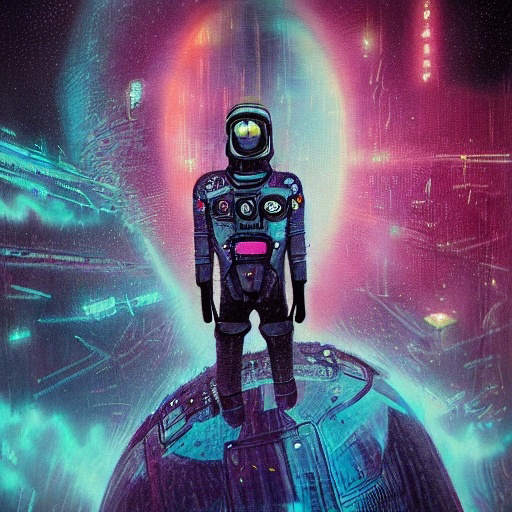Weeeee!
I don’t like your username, but I like your message.
Very interesting

You wouldn’t want to put the universe in a tube
Actually it’s just toilet water. Slow motion flushing.
Clockwise or counter/anti-clockwise?
It’s toilets all the way down!
…into the giant black hole in the middle!
We were rejected from God’s brown hole.
deleted by creator
Everybody pack, we’re moving.
I think some might respond that there kinda is no center… which is… bonkers really.
Another kinda wild theory that some scientists think may be valid is that we’re inside a gravistar. If so, maybe the gravistar is spinning, like many black holes do
We’re just circling a big drain
If that is true maybe that means that it actually is finite and has a center. And the rotation and light speed put an upper bound on its size.
Then again the the expansion of space doesn’t care about such mundane things as a cosmic speed limit so the universe rotation probably won’t either. Or the extents just slow down.
I thought the general consensus was that it IS finite and has a relative center point?
Nah in the past it looked like a pretty homogeneous mass when zoomed out enough. I assume this center of rotation is no more of a “pure center of the universe” than our sun is.
I’d imagine its just a local maximum for gravity.
And if everything is rotating, and most is rotating in the same direction, it means we’re probably in a black hole.
Science is going to be interesting during the next twenty years.
Why would it mean that?
I’m honestly curious.
I’m completely a layman, so don’t take my word as fact. But currently there’s a trend in thinking that because more than half of the galaxies they’ve been measured all rotate the same direction (as opposed to all random directions that a uniform static bang should result in) then the universe started out spinning in that direction.
What starts from a very small condensed state, and expands rapidly while spinning in one direction? Black holes.
Black holes also go through a life cycle that’s pretty close to what we expect or universe to go through.
It’s a new thought, I’m not even sure how much evidence there is past the galaxyspinning evidence. But it’s interesting and has scientists thinking.
It also takes care of any “multiverse” questions, since black holes are already in a universe. Some of the holes could be pocket universes, and we could be in one, with black hole pocket universes of our own.
I’m not even sure how much evidence there is past the galaxyspinning evidence
There was another article posted recently I can’t find now, that talked about the discrepancy between the age of the universe based on the Hubble constant, and what’s observed of the CMB, or something like that. Apparently that discrepancy can be resolved if the universe itself is rotating.
Really hoping someone can track it down and post up a link, I’m probably making hash of the actual article…
I remember that too now. Pretty neat stuff.
The observable universe is also way denser than a black hole of equivelent radius (black holes get lower in density the bigger they get) so one way or another we are in a black hole in the sense that somewhere out there is an event horizon through which you can never leave, just not in the traditional understanding which only really applies to ‘small’ (every single other) black holes.
Would our universe need to behave like anything inside our universe though? It could be a rotating expanding universe without being a black hole
The goal here is to make probable inferences, not to avoid being wrong at any cost. There’s always more possibilities, but we should try to eliminate the likely-seeming ones before chasing down less-likely ones. Know what I mean?
The possibilities are as vast as our ignorance: greater than we have the means to measure by some indescribably large margin.
Well said
Thanks.
Science means a lot to me
Ive never heard of black holes suddenly expanding. Everything ive read js that they just very, very, very slowly dissipate through Schwartzchild radiation.
They expand if they have matter falling into them.
What’s the “they” that you mean? The event horizon, the transition point where light can’t escape?
That doesn’t sound like what they were saying. The actual “hole” supposedly remains infinitely small. And the event horizon radius would expand at a pretty slow rate as matter fell into the black hole. Exponentially smaller as it gains mass.
So I’m still trying to understand in what case a black hole ever “expands rapidly”.
Dude, everyone here has said they’re not experts. Idk what you’re expecting us to say.
I’m a layman, too, so take everything with a grain of salt.
As for evidence, if I both understood and remember correctly, the maximum distance we can actually see something (Hubble radius) just happens to align quite nicely with the Schwarzschild radius, a parameter based on the mass of a black hole, which correlates to its radius. They have to be identical for this theory to be true. Them almost being so could be a coincidence, though.
In addition, from our perspective, there’s no real difference between an expanding universe and one with shrinking particles. If the planck length actually shrinks, to us, it will seem like everything else will move away. Within the last 100 years, multiple people created some models for that, proving how it could work while leaving physics as we observe them intact.
A proof could be found by observing a white hole, the opposite of a black hole. A space you cannot possibly enter, ejecting energy. Think of it as the stuff entering the black hole from the outside, as oberserved from the inside. They are just a theory for now.
Once again, I’ve got not actual clue and you might want to dive into that rabbit hole yourself. It’s fun in here.
Now that you mention it, i forgot about the radius possibility. Thanks for the follow-up!
Smarty pants. I don’t find any issues with your thought prices, but I’m a layperson.
My thoughts are only worth a penny. Or so I’ve been told.
Rofl. Corrected autocorrect.
It’s just pocket universes all the way down.
And up maybe too.
Black hole cosmology makes the most sense to me. But what do I know, I’m just a burnt out stoner.
If we’re a “white hole” I guess it must’ve been one insanely gigantic object that collapsed with no other matter around it rendering it dormant.
Unless somebody knows why we wouldn’t see new violently hot matter the higher universe black hole is consuming spewing out into our universe if it were still active.
Where would it spew? There’s no center as I understand? Psyduck holding head
It may have started consuming more matter billions of years later and the light hasn’t reached us yet/will never reach us
If that is true maybe that means that it actually is finite and has a center. And the rotation and light speed put an upper bound on its size.
Actually no, that would only be true if the universe was two-dimensional. The universe essentially curves back on itself. Kurzgesagt explained the two options of finite and infinity universes and this timestamp explaines the curving back: https://youtu.be/isdLel273rQ?t=120
Kurzgesagt really like to present scientific speculations as fact.
We simply do not know whether the universe is finite or infinite. And so far no curvature has been observed. As far as we are aware it is flat.
I think that if space itself is what is rotating, then speed of light limit does not apply. But if it’s everything in the universe orbiting, as it were, a central point, then it would.
But if it is space itself rotating, then that would suggest some objective frame of reference outside the universe. Wouldn’t it?
You might be onto something.
“It never occurred to me to think of space as the thing that was moving!”
But if it is space itself rotating, then that would suggest some objective frame of reference outside the universe. Wouldn’t it?
Not necessarily. Just like space is growing without the need for an objective outside frame of reference, it could be rotating - the rotation is just relative to itself.
I don’t think something can rotate relevant to itself. If all of reality was the earth, and nothing else, how can you tell if it’s spinning or not?
Please use small words if you try to answer this. I know a decent bit of applied physics, but once it turns to pure math, my head starts to swim.
Wow, so maybe the universe really is centered around me after all. Take that, 1st grade teacher! j/k.
I believe just the observable part is. Could be more.
considers things moving at very close to the speed of light uses Newtonian mechanics
It’s an interesting idea but this is a pretty massive oversight.
So it’s about 3 universe months old? Pfffft, baby.
Science is cool.
If it indeed rotates, this raises another question: What does it rotate around, i.e. where is the center of the universe? How does our position in the universe relate to this center, or which (known) structures have we observed there. Could it be the Great Attractor?
If it’s flat, and not curved, I think the center would be everywhere?
I can’t find any flaw in this. I was trying to think of it in any way other than having an actual center somewhere. This can be my model till I understand it better.
spiral ever increasing outward, wouldnt the center represent the big bang
Because time isn’t linear or whatever and its still expanding (I have no idea what im talking about)
Cool theory. But should not work if the universe is much larger than what can be seen though? Unless it’s just our visible part of the universe is rotating in a mind boggling large structure? And why not? All matter clumps, and a huge universe should have countless structures that are the size of all we know
I think as telescopes get better we just keep noticing bigger structures. Maybe this is just the biggest one we know right now.
I feel like it’d take some amazing statistics and millions of years of data to detail out structures larger than our observable universe.
I like the one where we live inside of a black hole, and a black hole is a gateway to another universe
Which one is that?
It’s this theory here:
https://en.wikipedia.org/wiki/White_hole#Big_Bang/Supermassive_White_Hole
edit: While I do like the idea I hadn’t begun to take it seriously until this news about our Universe possibly spinning. It’s one of the few properties of a black hole. The only other possibly persuasive bit of info I’ve personally heard about is that heat death seems awful similar to how black holes evaporate (Hawking Radiation) somehow apparently. I won’t pretend to understand that one.
Still doesn’t preclude an infinite cycle, so long as Nothing is unstable.
I think another point is that the edge of our universe is thought to behave in the same way as the event horizon on a black hole
If it ever turns out to be true (I’ll be long dead) that might start to answer my previous question here about what would happen if our black hole was actively or suddenly started consuming matter in the universe or whatever above ours. Still not comforting is the idea of our black hole merging with another.
The mass has to go somewhere by logic but I don’t know enough about it, but it would make sense for all that mass to be taken elsewhere
Not the most useful of gateways though if you have to be smushed to go through it.
I believe the correct term is “spaghettification” and it’s not your ordinary everyday spaghettification, but one that happens at an atomic level.
As long as you find a black hole that leads to the spaghetti universe, it would be fine
As I understand it, spaghettification only happens falling into a “small” black hole, the difference in gravity is huge over a small enough distance to stretch you into meat goop as your corpse fall towards the singularity.
A supermassive black hole like in our and most galaxy centers, you’d cross the event horizon without noticing anything different besides tunnel vision. But yeah. It’ll end with total obliteration.
Makes sense tho, there’s not much complexity to the material expanding from the big bang initially. Squished into almost nothing and squirted out the other end completely unmade is not great sci-fi :(
Think of the weight loss bro better than any diet
I like the theory from the movie Levels :)
If you drink enough it won’t take 500 billion years to rotate. In fact, you’ll have to hold onto the grass to keep from falling off the planet.
Scientists propose a lot of stuff. A lot of these proposals are contradictory to each other.
Still cool.
















